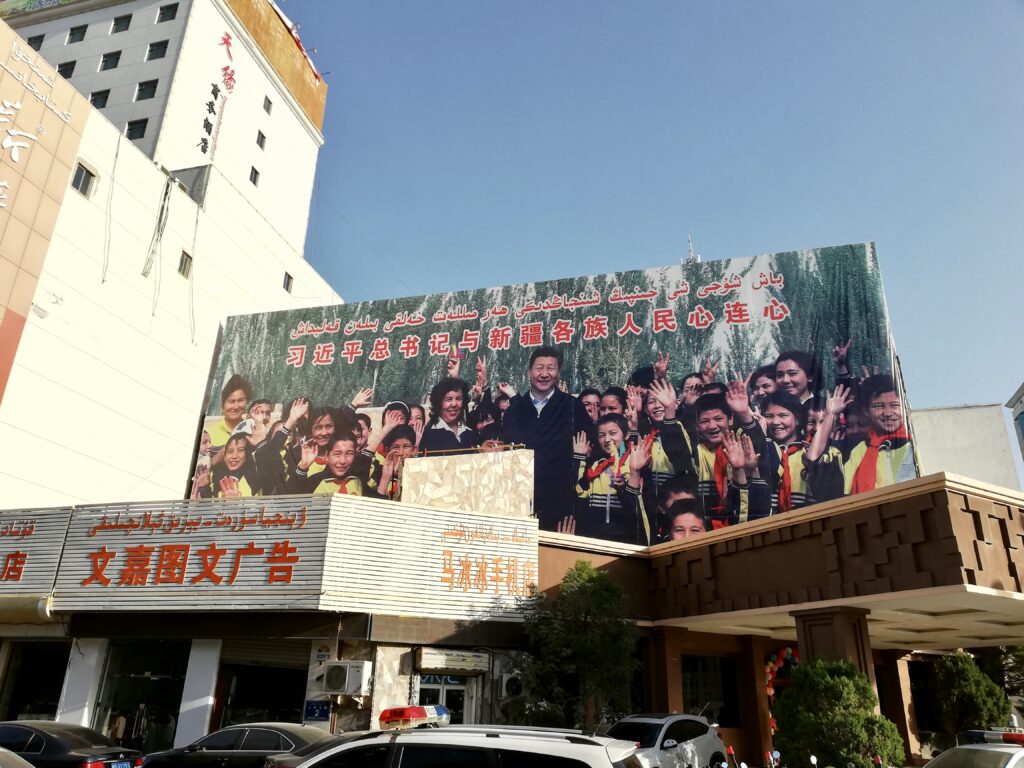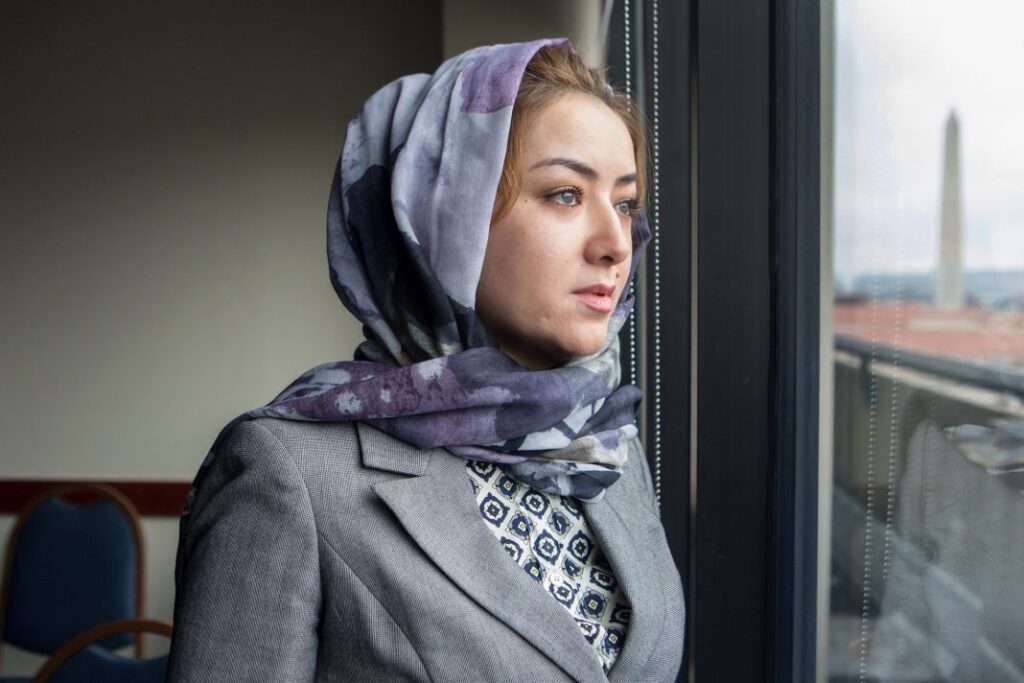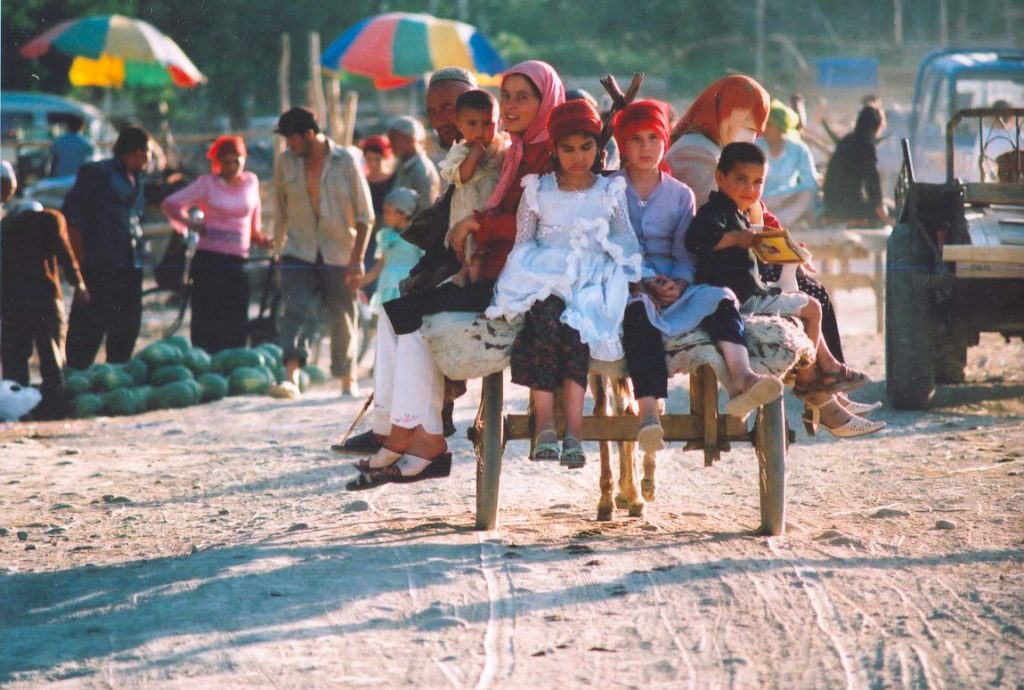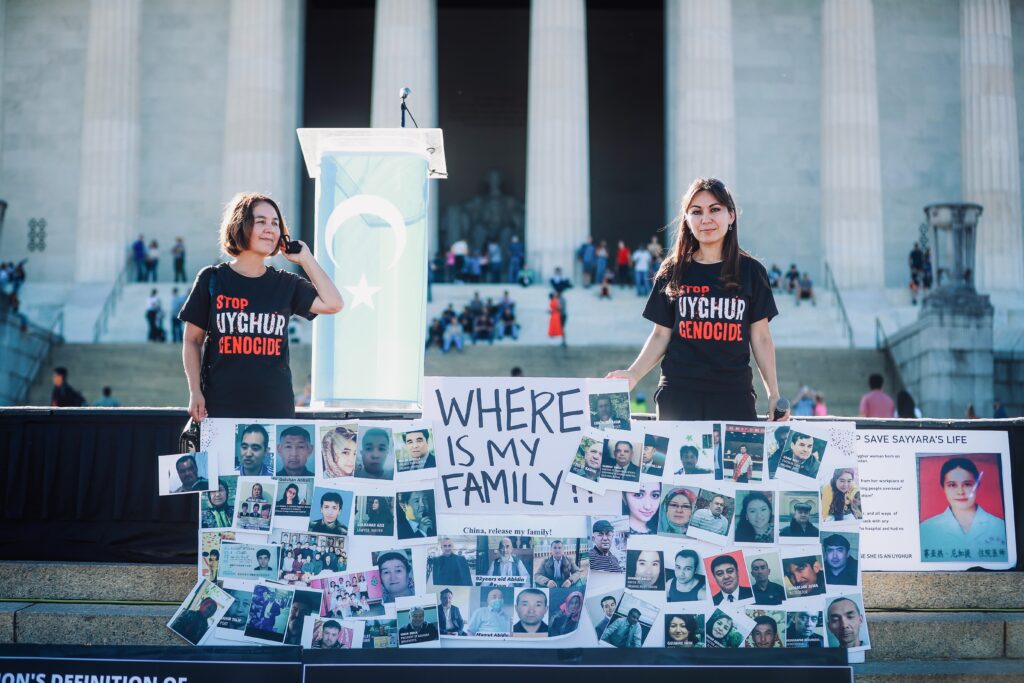Calling out crimes against humanity is the duty of every free country; Estonia, as a young democracy having lived through crimes against humanity during Soviet occupation, must be one of the leading voices to hold the Chinese Communist Party accountable for committing genocide in Xinjiang, Iverson Ng and Oliver Loode write.
In February, China hosted the 2022 Winter Olympic Games. For over a year, a group of US-based Tibetans, Hong Kongers and Uyghurs campaigned for a global boycott against the Olympics. Ten countries, including Estonia and Lithuania, joined the diplomatic boycott. While the Estonian government subtly participated in the US-led diplomatic boycott, it should recognise China’s act of genocide against Uyghurs in Xinjiang.
Uyghurs – the most persecuted indigenous people on Earth
Given that 56 separate ethnicities are categorised in China, it does not recognise any of them as indigenous peoples in accordance with international law. Many Chinese ethnic groups, including Uyghurs, meet all or most of the informal criteria for indigenous peoples.
Uyghurs stand out for their distinct cultural, religious and linguistic identity, though they are a minority group in China. World Uyghur Congress (WUC), a global community of Uyghurs, has been conducting international advocacy initiatives as an exercise of Uyghurs’ right to self-determination.
However, Uyghur representatives are not often seen at global indigenous peoples’ gatherings such as the annual sessions of the UN Permanent Forum of Indigenous Issues (UNPFII), because of Chinese intimidation. In April 2017, one of us personally witnessed Dolkun Isa, founder of WUC, brutally forced out of the UNPFII plenary session in New York by Chinese-backed UN security guards.

China will do anything to deny Uyghurs their right to self-identify as indigenous peoples with its resulting collective rights, but this should not blind the rest of the world.
Given the systematic and sustained efforts of China’s actions and the unprecedented human, financial and technological resources that China has amassed against the Uyghur people, they represent one of the most persecuted indigenous groups on Earth.
In Estonia, due to its decades-long commitment to supporting the rights of indigenous peoples worldwide – including, but not limited to Finno-Ugric peoples in Russia – the country should understand the moral responsibility and national mission it has to speak truth when genocide is perpetrated against one of the world’s indigenous peoples, and to hold the perpetrator accountable.
Naming a genocide by the national parliament is the least that Estonia, as a signatory to the 1948 Convention on the Prevention and Punishment of the Crime of Genocide, can and should do.
An evidence-based approach to understand the Xinjiang genocide
On 9 September 2021, a British-led independent Uyghur Tribunal concluded that the Chinese Communist Party (CCP) has committed crimes against humanity including enslavement, torture, rape and enforced sterilisation which constitute the act of genocide in Xinjiang.
Chaired by British barrister Sir Geoffrey Nice QC, the people’s tribunal reviewed more than 500 witness statements, heard live evidence of more than 30 political dissidents on the Chinese concentration camp system as well as 40 expert witnesses on the situation in Xinjiang.
With independent research and investigations, it uncovered not only the Chinese government’s genocidal intention but also its structure and decision-making process to commit such crimes.

Estonia’s international obligation in recognising the genocide
As a member of the international community, it is Estonia’s duty to call out China’s systematic and intentional act of genocide in Xinjiang. On 8 March 2021, as an independent and non-partisan initiative, about 50 global experts in international law, genocide studies, Chinese ethnic policies and Xinjiang conducted a 55-page research report and concluded that China is responsible for breaches of all provisions of Article II of the 1948 Genocide Convention, including the intent to destroy the whole population of Uyghurs in Xinjiang.
Being part of the European Union, solidarity is needed to back initiatives with moral leadership. In the case of Xinjiang genocide, eight liberal democracies, including five EU countries (the Netherlands, Lithuania, Belgium, the Czech Republic and most recently France) have recognised the genocide in their national parliaments.
European unity is what the EU-27 bloc needs right now, and as a small country, Estonia relies on that for its own survival in the international arena.
More importantly, Estonia’s moral duty is also embedded at the European level. In December 2020, the European Parliament (EP) passed a resolution on forced labour and the situation of Uyghurs. With more than 600 out of 705 Members of the European Parliament’s support, the EP called on the Chinese government to end the “mass incarceration” of ethnic minorities in camps and detention centres and demand the immediate and unconditional release of those detained.
Instead of addressing the issue itself, the CCP responded with anti-sanctions after being sanctioned by the EU based on China’s human rights violations.

Estonia’s choice: upholding values or realpolitik
Unlike Lithuania’s values-based foreign policy, Estonia has taken a more cautious approach, ostensibly balancing its commitment to human rights and its economic interests. This tradition was established in October 1991 when the newly independent Estonian political leadership refused to meet the Dalai Lama on his first historic trip to Estonia.
But in fact, such a cautious approach does not bring any practical economic benefits to Estonia, as China accounted for just 1.7 percent of Estonia’s exports in 2020.
Calling out crimes against humanity is the duty of every free country. Estonia, as a young democracy having lived through crimes against humanity during Soviet occupation, must be one of the leading voices to hold the CCP accountable for committing genocide in Xinjiang.
Estonian diaspora around the world must stand with Uyghurs living abroad. It’s been a long road for Estonians around the world to regain their freedoms with the help of the international community. It’s time for Estonians living around the world to stand up for a population facing systematic elimination by an authoritarian regime.
The opinions in this article are those of the authors.

